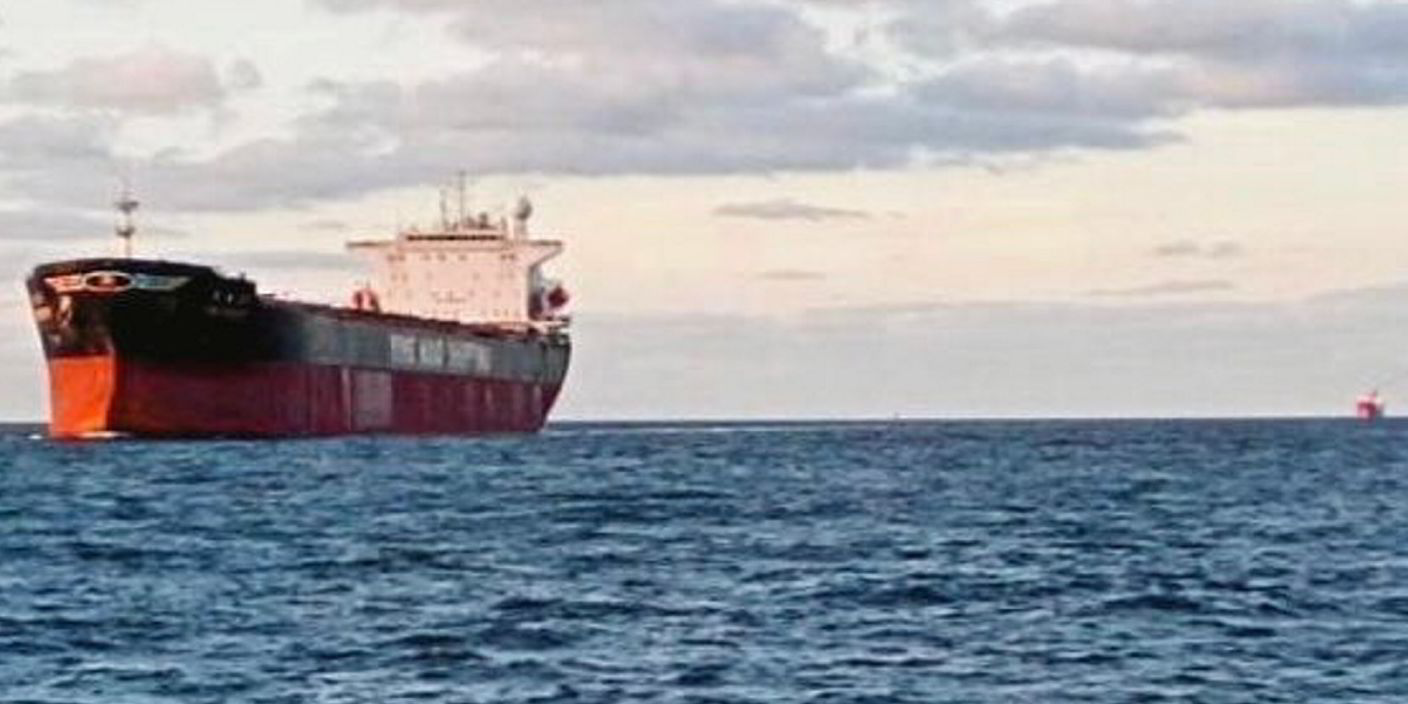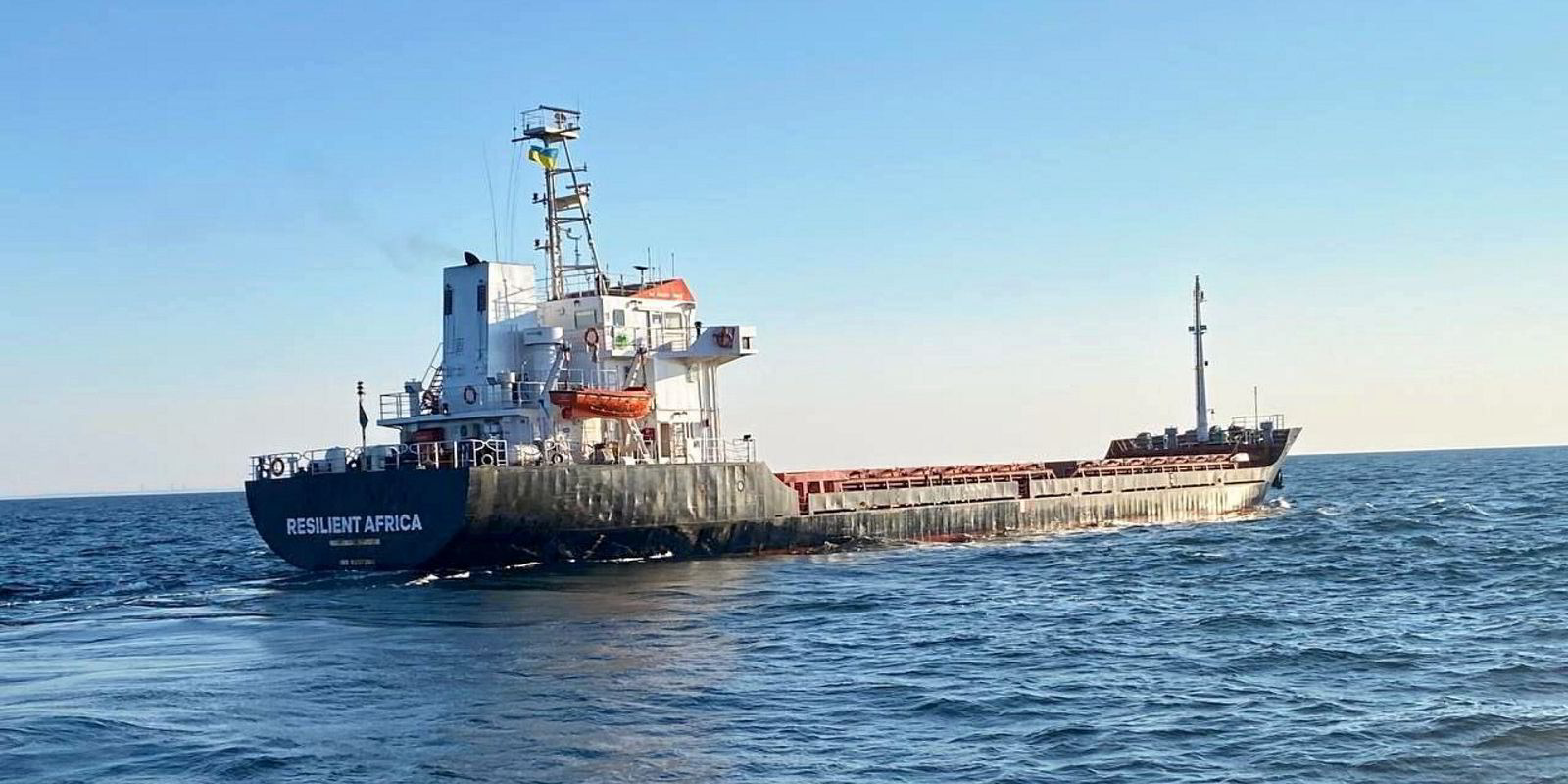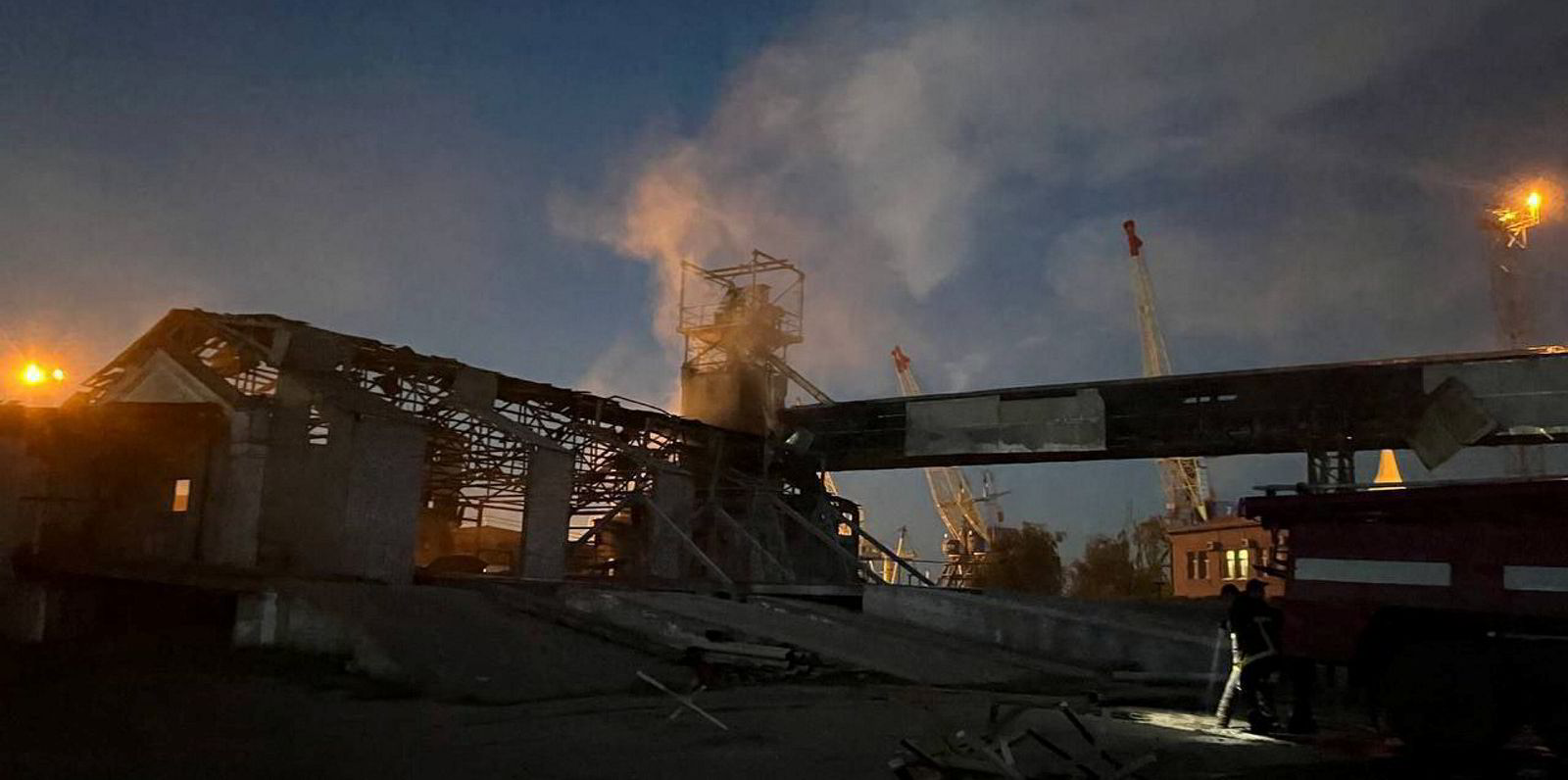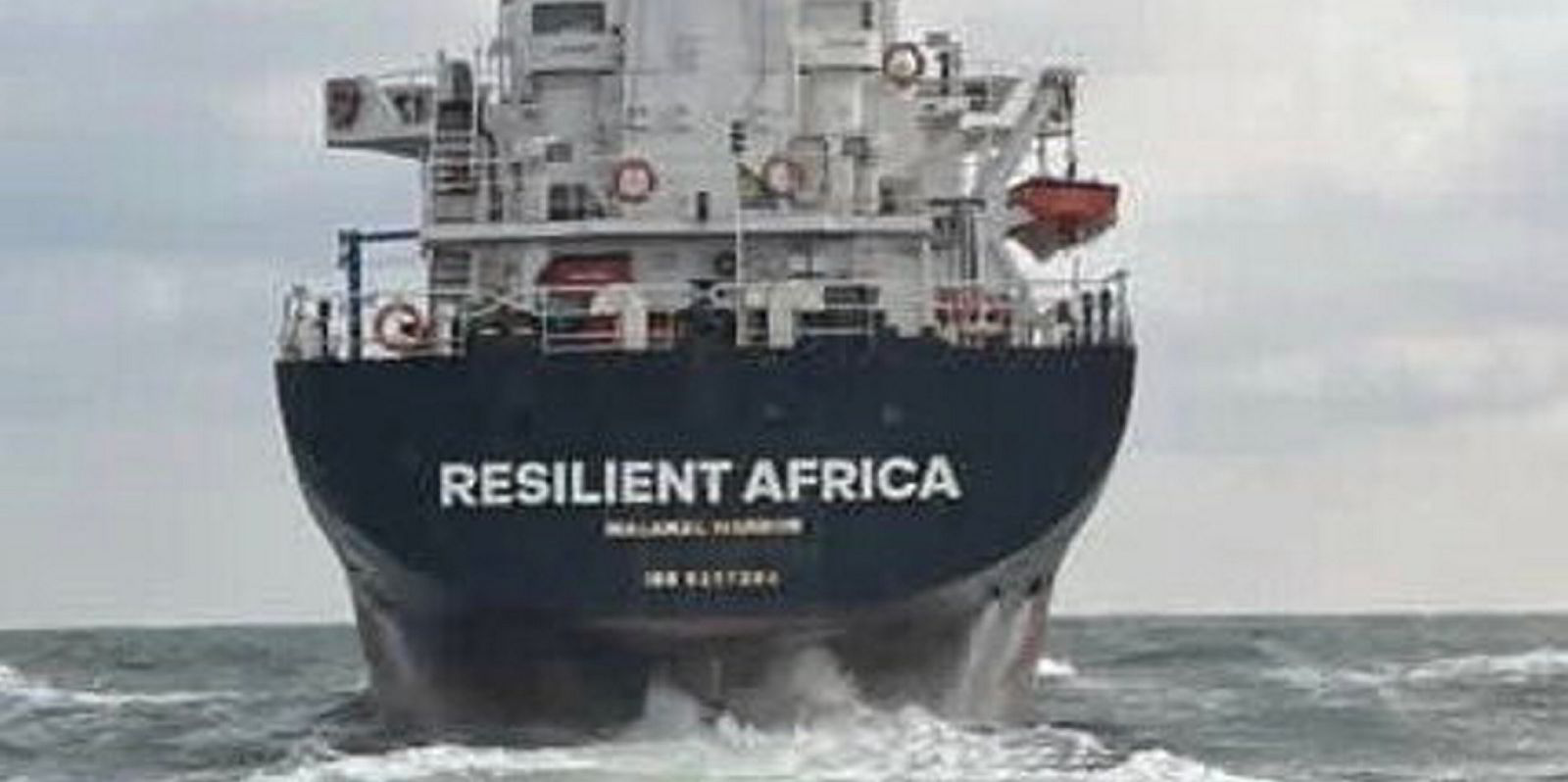Ukraine’s new grain corridor is getting traction.
Three bulkers set course for the war-torn country on Friday, just hours after a cargo ship loaded at Chornomorsk and left, in defiance of a Russian naval blockade.
According to Ukrainian officials, the ships are the 45,600-dwt Eneida (built 2000), 74,800-dwt Ying Hao 01 (built 2002) and 13,900-dwt Azara (built 1997), which are already underway in the Black Sea.
Their destinations are Chornomorsk and Pivdennyi.
They are the second batch of vessels to try to complete a round trip to Ukraine after the 3,300-dwt Resilient Africa (built 2001) and 18,300-dwt Aroyat (built 1997), which arrived in Chornomorsk on 17 September.
As TradeWinds reported, the Resilient Africa left Chornomorsk on Tuesday and the Aroyat departed earlier on Friday.
Both ships are fully loaded with wheat.
The Resilient Africa, which has already safely reached the Bosphorus, is heading for Israel.
The Aroyat, which is still underway in the Black Sea heading south, is bound for El Dekheila, Egypt.
The Resilient Africa and Aroyat were the first two vessels to have sailed to a big Ukrainian port since July, when Russia pulled the plug on a United Nations-guaranteed grain corridor and said it would consider all ships in these waters potential military targets.
The successful completion of their round trip will be a boost for Ukraine, which seeks to establish its own maritime corridor without having to depend on Moscow’s acquiescence.
Under the new maritime corridor, vessels sail close to Romanian and Ukrainian shores and then past Chornomorsk further north to meet a Ukrainian pilot boat off Odesa — probably to take a local pilot on board.
Shipping data platforms show the Aroyat and the Resilient Africa under Turkish management — the Aroyat with Kiva Marine and the Resilient Africa, previously known as Dafne H, with HDR Denizcilik.
They are flying the flag of Palau and their crews are from Turkey, Azerbaijan, Egypt, Ukraine, Belgium and Albania.
The Eneida and Ying Hao 01 fly the flag of Liberia, while the Azara is under the flag of Palau.
The Eneida has been registered since August 2022 with Panama-based Camino Shipping but its technical management is done out of Ukraine, by Odesa-based Staff Centre Shipmanagement.
The Ying Hao 01 is registered with China’s Dongguan Yinghao Ship Management.

The Azara is under Ukrainian ownership and Polish management.
Kyiv has already used its new corridor since August to get out five vessels trapped in Ukraine when the war began — one container ship and four bulkers, as TradeWinds already reported.
The Aroyat and Resilient Africa are understood to have no commercial marine insurance cover. Their eventual success in getting grain out, however, might encourage insurers to arrange cover, and shipowners to send fresh ships into the corridor.
TradeWinds reported in August that insurance broker Marsh was involved in talks to arrange war risk cover for Ukrainian grain exports along a missile-protected sea corridor.
Insurance sources in the London market told TradeWinds then that the deal, discussed with Marsh consultancy firm Oliver Wyman, was hinging on a risk-sharing agreement between the Ukrainian government and the private insurance industry.
The war risk cover would be for a critical 10 hours sailing from the Romanian border at the Danube up to Ukraine’s deep-sea ports, the waiting and loading period, and then the return journey. Underwriters’ exposure could be limited by fast turnaround and restricting the number of ships in the high-risk area at any one time.
Even though Marsh is not covering any of the vessels getting out of or into Ukraine this week, a deal may now be possible, as the military situation in the Black Sea has recently shifted in Ukraine’s favour.
Over the past few days, Ukraine has successfully hit military installations and naval assets in Crimea, the key outpost Russia uses to control the Black Sea.
Ukraine also said this month that it has recaptured some abandoned offshore gas and oil rigs in the area, which should allow it to better control adjacent waters.
Another factor pushing Kyiv to accelerate efforts to get its grain out by sea is that it faces increasing difficulties doing so by land. A string of neighbours, notably Poland, this month extended import restrictions on Ukrainian grain, to protect their own farmers.





